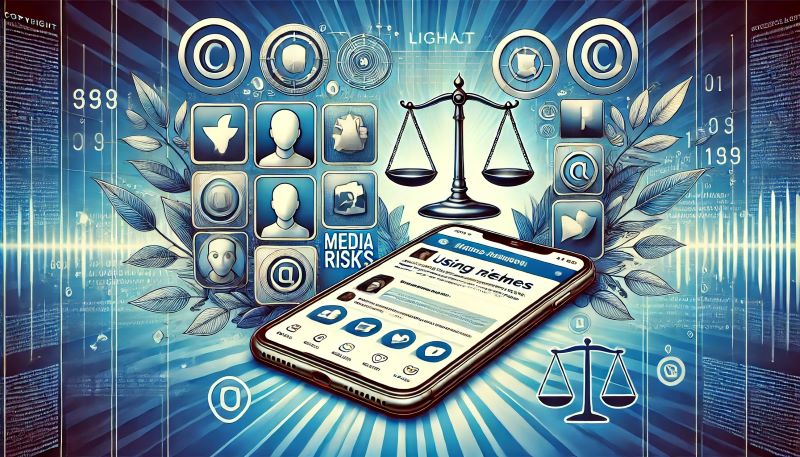
The use of memes has become a staple in online communication. These humorous, widely shared images or videos often feature copyrighted characters, phrases, or artwork. However, you may wonder whether sharing a meme on social media could lead to a lawsuit. Below, we explore the legal considerations surrounding memes, copyright infringement, and trademark violations.
What Is a Meme, and Why Are They Legally Complex?
A meme is typically an image, video, or text modified and widely shared online for humorous or cultural commentary. While the definition of a meme is fluid, its legal implications are not. Memes often incorporate copyrighted material, such as images of characters from movies or phrases from popular media. Using such material without the copyright holder’s permission may violate copyright law.
The challenge arises when memes are casually used on social media platforms or embedded in chat apps. While platforms may claim some level of authorization, individual users and businesses do not automatically inherit those rights. As a result, posting a meme containing copyrighted material could lead to legal action, particularly if the use does not qualify as “fair use.”
Does Fair Use Apply to Memes?
The fair use doctrine, under 17 U.S.C. § 107, allows limited use of copyrighted material without the owner’s permission for purposes such as criticism, commentary, news reporting, teaching, or research. Memes may qualify for fair use if they transform the original work significantly—such as by adding parody or social commentary.
However, businesses face higher scrutiny when claiming fair use. Courts consider factors such as:
- The purpose and character of the use (e.g., commercial vs. non-commercial).
- The nature of the copyrighted work.
- The amount and substantiality of the portion used.
- The effect of the use on the market value of the original work.
For example, if a business posts a meme featuring a trademarked character to promote a product, it’s less likely to be considered fair use because it serves a commercial purpose.
Trademark Issues: When a Meme Isn’t Just Copyrighted
In addition to copyright concerns, memes may also involve trademarked material. For instance, businesses using memes with logos or phrases could face trademark infringement claims. The Lanham Act (15 U.S.C. § 1125) prohibits the unauthorized use of trademarks if it causes confusion or dilutes the brand’s value.
For example, a trademark dispute erupted over a viral meme phrase, “Very Demure, Very Mindful.” While the phrase’s creator initially popularized it, another individual trademarked it first. This highlights the importance of securing intellectual property rights early, particularly for businesses.
What Can Businesses Do to Avoid Legal Risks?
To minimize legal exposure, businesses should:
- Understand Licensing Requirements: Many meme sources, like Giphy, have agreements with copyright holders. Verify whether your use aligns with the platform's terms.
- Obtain Permission: When in doubt, contact the copyright or trademark holder for explicit permission to use their material.
- Create Original Content: Developing memes in-house or purchasing stock images and videos with commercial licenses can sidestep legal gray areas.
- Consult Legal Experts: Engage with intellectual property attorneys to ensure compliance with copyright and trademark laws. While litigation over memes is relatively rare, high-profile cases and judgments—such as the $710,000 awarded in a lawsuit over unauthorized use of the "Grumpy Cat" meme—illustrate that legal action is possible. For businesses, ignorance is not a defense.
All information provided on Silblawfirm.com (hereinafter "website") is provided for informational purposes only, and is not intended to be used for legal advice. Users of this website should not take any actions or refrain from taking any actions based upon content or information on this website. Users of this site should contact a licensed Texas attorney for a full and complete review of their legal issues.
